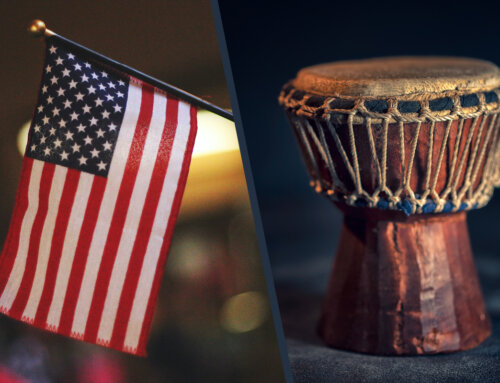Parents often add a child’s name to the deed of their home. This is typically done to prevent the home or other real property from going through probate. This practice, however, is very risky. There are many reasons not to put your child’s name on your deed. Among other things, it can create title issues and expose your property to your children’s creditors or even their ex-spouse in a divorce. Of course, there is another motivation for not putting a child’s names on your deed. Taxes! Adding a child to your deed can have serious tax consequences. Fortunately, there is a better alternative. A Lady Bird Deed is a tool used by estate planning attorneys that allows you to easily pass your home to your children while providing a tremendous tax benefit.
Lady Bird Deed and Taxes
Using a Lady Bird Deed gives your children something called a “step-up in cost basis” upon your death. What does a step-up in cost basis mean? Well, first you must understand capital gains and the capital gains tax.
A “capital gain” is the difference between your cost basis (the price you pay for the home) and the amount you get when the home is sold (sale price). For example, if you purchased a home for $100,000 and later sold the home for $500,000 you would have a “capital gain” of $400,000. The capital gains tax, as the name suggests, is the tax imposed on the capital gain (profit) from the sale of the home. In this example, the capital gain tax is imposed on the gain of $400,000. With rates as high as 20%, your capital gains tax on the sale, in this example, could be as much as $80,000.*
Using the same example, say instead you bought a home for $100,000 but passed away before it was sold. In this case, because the home passed to your children upon your death their tax basis is “stepped up” to the value of the home at the time of your death. If the home was worth $500,000 at the date of your death, then their cost basis in the home is $500,000. So if they sell the home a year after your death for $510,000, then their taxable gain would only be $10,000 (not $410,000). As such, your heirs are only taxed on gains realized from the time of your death to the date the home is sold.

Tax Benefits of Using a Lady Bird Deed
A Lady Bird Deed provides a tremendous tax benefit because it transfers your home to your children and gives them the step-up in tax basis described above. If you were to simply add your children’s names to your deed while living, your children would not receive this sizeable tax benefit. Here are some examples to illustrate the impact of using a Lady Bird Deed.
Let’s begin by looking at the tax consequences of simply adding a child to your deed, rather than using a Lady Bird Deed.
Example 1: Taxes Consequence of Adding a Child to Your Deed. Say you bought your home in 1980 for $50,000. In 2010, you add your daughter to the deed of the home when the home is worth $400,000. When you added your daughter to the deed, you technically gifted her of one-half the value of the home ($200,000). She also receives one-half of your cost basis ($25,000). Thus, if you were to pass away and your daughter sells the home for $400,000, then she would be liable for the capital gains tax on her $175,000 profit from selling the one-half share of the home you gifted her in 2010.
Tax on Sale of Daughter’s Half of Home
Sale Price ………………..…… $200,000 (Her 1/2 of $400,000)
Purchase Price (Basis) ….. $25,000 (Her 1/2 of $50,000)
Gain …………………..…………$175,000
Tax . ………………………..….. $35,000
The current capital gain rate can be as high as 20%. Meaning, your daughter could have a tax bill as high as $35,000 on the sale of her one-half share of the home you gifted to her in 2010.
Conversely, your one-half share of the home is likely not subject to capital gains tax because your daughter will receive a step-up in tax basis upon your death. Meaning, her cost basis (purchase price) for your half of the home worth $200,000 is stepped up from the original purchase price of $25,000 to $200,000, thereby eliminating the capital gain on the sale of your share of the home.
Tax on Sale of Your Half of Home
Sale Price …………………… $200,000
Purchase Price (Basis) … $200,000 (Stepped up from $25,000 to $200,000)
Gain ……………………………$0.00
Tax .……………………….….. $0.00
Total Tax: $35,000.00
As illustrated above, your daughter may be liable for a capital gain tax as high as $35,000 on the share of the home you transferred to her in 2010. There is no tax on the share she received from you upon your death because your daughter got a step-up in cost basis. Transferring the home upon your death, rather than while living, can eliminate capital gains tax. So why not transfer the entire home to your daughter when you pass? What if instead of adding your daughter’s name to your deed while living, you use a Lady Bird Deed?
Example 2: Taxes Benefits of Using a Lady Bird Deed. Say you bought your home in 1980 for $50,000. In 2010, you execute a Lady Bird Deed which gives your home to your daughter upon your death. Because the house passes upon your death, your daughter receives a step-up in tax basis on the entire value of the home. Meaning, if she sells the home after your death her cost basis (purchase price) is stepped up from the original purchase price $50,000 to $400,000 (the value of the home at your death), thereby eliminating the capital gain on the sale of your share of the home.
Sale Price …………………… $400,000
Purchase Price (Basis) …. $400,000
Gain ………………………………….$0.00
Total Tax: $0.00
By using a Lady Bird Deed, rather than adding your daughter on your deed, she can take advantage of a full step-up in cost basis and save as much as $35,000 in capital gains tax. She will not receive this tax savings if you put her on your deed while you are living.
Lady Bird Deeds can be a very powerful tool in the right situation. This is particularly true given their low cost and relative simplicity. Lady Bird Deeds are not, however, perfect for every situation. They do have their own shortcomings. Determining if a Lady Bird Deed is the right tool for you requires a review of your estate by an experienced estate planning.
Michigan Lady Bird Deed
Let us help you decide if a Lady Bird Deed is right for you. Our law office is located in Plymouth, Michigan. Our estate planning attorney serves all of Southeastern Michigan and Ann Arbor, including Plymouth, Canton, Livonia, Northville, Novi, West Bloomfield, Commerce, and Farmington Hills.
We offer exceptional legal services in the areas of wills, trusts , special needs trusts, probate, living trusts, revocable trusts, charitable trusts, medical power of attorney, durable power of attorney, and more!
About the Author: Aaron R. Shahan is an attorney at Atlas Law, PLC. Aaron dedicates his practice to virtually all aspects of estate planning, elder law, and probate.
Free Consultations! Call Today! (248) 773-555
*Some exclusions are available for homeowners who live in the home being sold to exclude a portion of this gain. Various rules apply. The application and availability of such exclusion is beyond the scope of this article.



